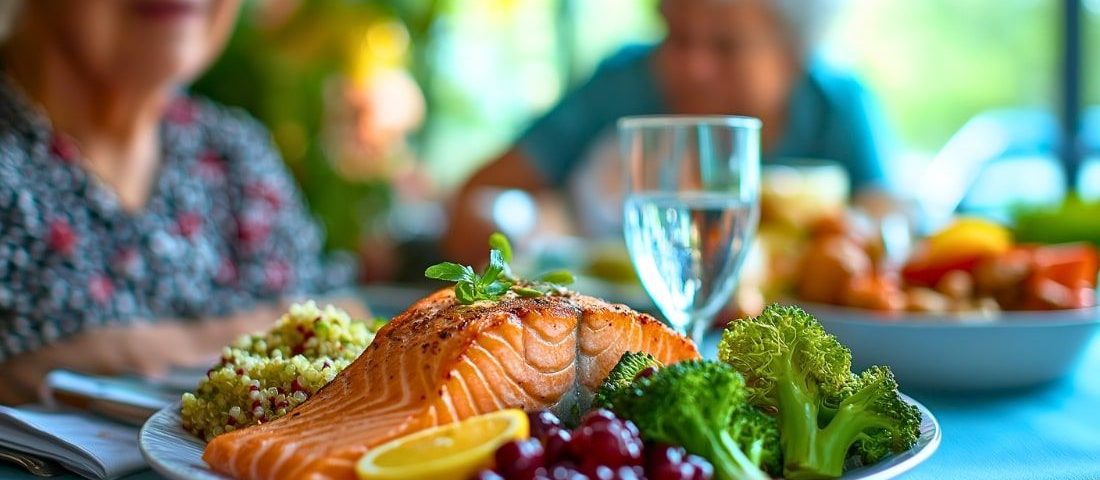
A healthy diet for seniors is an important concern. It ensures the nutrition they need and promotes a healthy life. Diet may also be an important component of managing health conditions. Nutrition for older adults can improve movement and support brain function. This post will explore food options to help seniors live happier, healthier lives.
Diet for Seniors: Foods to Include in a Healthy Diet
Fruits and Vegetables
They are great sources of vital nutrients, including calcium, vitamins D and C, antioxidants, healthy carbohydrates, and fiber. Seniors should add lots of fruits and vegetables to meals and snacks. Incorporating these nutrient-rich options into your diet can improve health in many ways.
Berries
Berries are a nutritional powerhouse for older adults. They are full of fiber, vitamin C, and antioxidants that support heart health, brain function, and digestion. Berries are the MIND diet, which combats neurodegenerative diseases. Research shows benefits like reduced dementia risk, cardiovascular protection, and delayed macular degeneration.
Dark-Green Leafy Vegetables
As we age, our bones need more calcium, which you can get from low-fat dairy and leafy greens. Some examples are kale, spinach, and broccoli. These veggies are also high in fiber, support muscle function, and promote heart health. Eating a cup of greens can strengthen lower limbs, reduce heart disease risk, and lower the likelihood of dementia.
Citrus Fruits
Citrus fruits like oranges, grapefruits, and tangerines are high in vitamin C. This powerful nutrient is not just a supplement; it’s a key player in your body’s defense system. It supports immunity, helps repair tissues, and fights infections, empowering you to stay healthy and active.
Legumes
Legumes like chickpeas, black beans, and lentils contain protein and fiber. They’re also great for reducing inflammation. Legumes are also rich in potassium, iron, and magnesium while low in fat and cholesterol. That makes them a healthy alternative to meat for anyone wanting to mix up their protein sources.
Lean Proteins
Protein, particularly lean proteins, is a crucial component of a senior’s diet. It helps to build muscle, store energy, and support body functions. You can incorporate lean meats like salmon, eggs, nuts, seeds, and nutrient-dense vegetables into your diet.
Whole Grains
Whole grains are not processed. They keep their natural, nutrient-rich layers. Unlike processed grains, whole wheat, oats, and rice contain vitamins, minerals, healthy fats, and fiber. The fiber helps keep you full longer and supports overall health. A diet with plenty of whole grains can also reduce the risk of diabetes and heart disease.
Seafood
Older adults need more protein—around 5–6 ounces daily—because their bodies don’t process it as efficiently. Fish also provides vitamin B12, which becomes harder to absorb with age. Some fish are also great for omega-3 fatty acids, which can lower the risk of chronic diseases. Eating fish 2–3 times a week is a healthy habit for aging bodies.
Enrich Senior Living fosters an environment of purpose and independence for seniors. We strive to provide every resident with the best possible quality of life. Click here to learn about our customized services, or click here to contact our team.
Schedule a visit with the Enrich team by clicking here.
Thanks for visiting!



